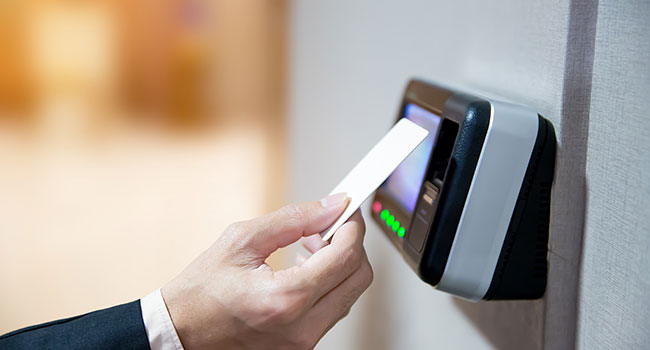
Access ID Market Predicted to Grow Following 2020 Decline
A new annual report shows that sales of access control products declined to $7.9Bn in 2020. However the report from researchers at Memoori also forecasts that by 2025 the world market should be worth $10.2Bn a CAGR of approx. 5% over the next 5 years.
Memoori has charted the performance of the access control business during the last decade, witnessing demand for products expanded by a CAGR of 8.2%; and at the beginning of 2020 reaching sales of $8.7Bn.
However, the analysts say that it has been problematic to size the market with confidence in 2020 because the Covid-19 pandemic has not yet been controlled and many countries across the world are in the midst of a second or third spike in COVID infections and are locking down several aspects of civil society.
In 2020, sales of access control products declined to $7.9Bn. Memoori's market model forecasts that by 2025 the world market should be worth $10.2Bn a CAGR of approx. 5% over the next 5 years. Whilst there is nothing good you can say about Covid-19 it has created a pent-up demand and new applications for access control products are now providing a valuable service to control Covid-19 in buildings and in particular identity management will play a more important role during the next five years.
During 2020, access control played a significant role in assisting social distancing by providing information on the location of staff and visitors for occupancy management thresholds. Vendors are now looking to go further by also assisting with wellness verification and contact tracing.
Over the next five years, Memoori anticipates demand will be driven by growth in IP networking products, access control as a service (ACaaS), biometric readers and integration with identity management. Integration with other physical security systems and the building internet of things is now becoming an established part of the business and this is generating further growth.
End users who are in the market to replace older systems are increasingly investigating ACaaS as an option. In the current economic climate, the analysts suggest that a recurring fee for a managed access control service is looking more attractive than the option of large upfront capital expenditure.
Access control is still a much smaller business than video surveillance and today is less competitive, but consolidation through acquisition has been a significant feature over the last 5 years and this has created a much stronger and more competitive environment.
Researcher found that with this has come the confidence to move forward and take up the challenge of embracing new technologies that will deliver better performing products necessary to continue to increase demand. The industry has in the past been reluctant to adopt open standards but within the last 2 years we are seeing signs that some suppliers are taking a more open approach to their software and hardware development.
The analysts at Memoori are bullish about this business as it moves further into IP networking and strengthens its relationship with biometrics and identity management and building occupancy management systems. These trends are significant drivers that should maintain the growth momentum, albeit at a lower rate during the next couple of years due to the pandemic.
Winning new business in a deep recession is a daunting prospect because it leaves millions of buyers of physical security products less capable to invest in new technology or indeed replace systems that might be just “good enough” for now. This means that access control vendors will have to focus even harder on directly contributing to improving the performance of their clients businesses.